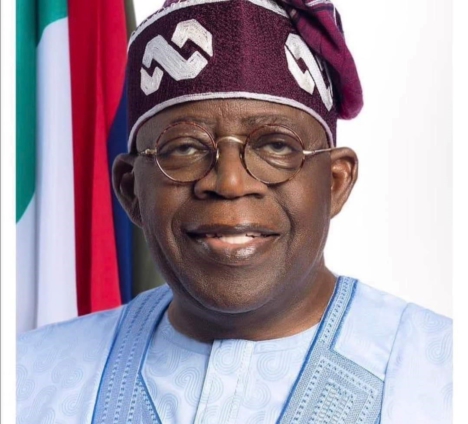Nigeria has imposed a mandatory annual levy for organisations employing expatriate workers, requiring them to pay $15,000 (£12,000) for a director and $10,000 for other categories.
The move is meant to encourage foreign companies to employ more Nigerian workers.
Staff of diplomatic missions and government officials are exempt.
President Bola Tinubu has warned that the levy should not be used to frustrate potential investors.
He spoke while launching the Expatriate Employment Levy (EEL) handbook on Tuesday, adding that the government was expecting to improve revenue and indigenisation.
He said that its aim was to balance employment opportunities between Nigerians and expatriates.
"The goal is to close wage gaps between expatriates and the Nigerian labour force while increasing employment opportunities for qualified Nigerians in foreign companies in the country," he said.
There are more than 150,000 expatriates in Nigeria, according to local media citing data from the interior ministry.
They mostly work in the oil and gas, construction, telecommunication and hospitality sectors.
Nigeria is one of Africa's biggest oil producers. Its oil and gas exports account for 90% of foreign exchange earnings, according to the International Monetary Fund.
The move comes as Nigeria is experiencing its worst economic crisis in a generation, which has led to widespread hardship and anger in recent months.
Labour unions and government workers on Tuesday held demonstrations to protest against economic hardships.
Mr Tinubu acknowledged that Nigerians were going through a difficult period.
He said efforts were being made to improve the country's finances and grow the economy.
The levy applies to employees who work for at least 183 days in a year.
The scheme imposes fines of up to three years and jail terms of up to five years for a person or organisations that do not comply, including failure to provide accurate information.
The Nigerian Immigration Service will be responsible for enforcing the levy.
Local media quoted Interior Minister Olubunmi Tunji-Oj as saying that it would be operated on a public-private partnership model between the government, the immigration service and a private firm.
Nigerian economist Abubakar Abdullahi says the levy is good for the country and won't frustrate potential investors as "they'll love to see the country grow as well".
"I believe Nigeria stands to benefit from this levy as more companies will start looking inwards as there are qualified Nigerians from all sectors," he says.
Latest Stories
-
PUWU hoists red flags nationwide over gov’t plan to privatize ECG and NEDCo
4 hours -
Kwame Yesu’s latest project blends raw emotion with rap precision
5 hours -
Court remands Mobile Money robbery suspect into police custody
5 hours -
BIDEC and Ghana Dance Association engages Ghana Tourism Authority on dance tourism
6 hours -
Ghana pushes forward with National AI policy through multi-stakeholder engagement
6 hours -
Mahama pays tribute to late Pope Francis
6 hours -
W/R police clamp down on crime: Suspects arrested for vehicle theft, gold robbery, galamsey
6 hours -
This Saturday on Newsfile: Chief Justice suspension and galamsey take centre stage
6 hours -
GIMPA GRASAG inaugurates study rooms, business centre to support academic work
7 hours -
Be circumspect with selection of new investors for Damang Mine – ACEP to government
7 hours -
Chieftaincy Institution in Ghana at a Crossroads – A Perspective by Andrews Kofi Anokye (KOANS)
8 hours -
Offinso highway robbery: Police mount hunt for killers of bus conductor
8 hours -
‘We will fish him out’ – DCOP Teye-Cudjoe vows to arrest soldier behind Nyinahin shooting
8 hours -
Traditional leaders laud AngloGold Ashanti’s youth dev’t initiatives in Obuasi
8 hours -
Cyra Pamela Koranteng resigns as Judicial Secretary, deputy elevated
8 hours

